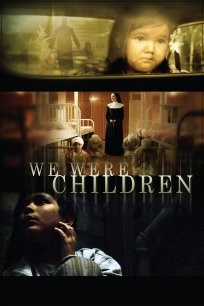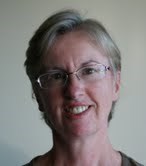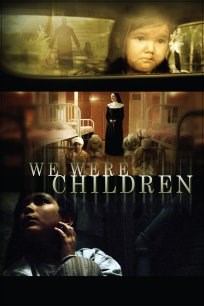 In the process of developing a series of anti-racism workshops, I’ve been going through all kinds of material, some of it written, but mostly videos, films, podcasts, TED talks, you name it. The goal is to find educational material that lends insight and fosters empathy for victims of racism, from anti-Asian to anti-Semitic, anti-Indigenous, anti-Black, and Islamophobia.��
In the process of developing a series of anti-racism workshops, I’ve been going through all kinds of material, some of it written, but mostly videos, films, podcasts, TED talks, you name it. The goal is to find educational material that lends insight and fosters empathy for victims of racism, from anti-Asian to anti-Semitic, anti-Indigenous, anti-Black, and Islamophobia.��
It’s been an amazing journey, sometimes painful, often emotional. Recently, my husband and I watched "We were Children",�� featured on not long after the discovery of unmarked children’s graves at two Catholic-run residential schools earlier this year. It was hard to watch as two survivors, in the later years of their lives, painfully recounted their lives as children in that misbegotten and cruel system.��
The images brought back so many memories of my childhood that empathy was easy. I went to all-girl Catholic schools and was taught by nuns until I entered university. I remember the younger Sisters and the strict and forbidding Principals with strange names, dressed in black veils and long robes with stiff white bibs.
But there the similarities ended. Every evening I walked home to a family of four brothers and a mother and father, and by day I was taught and surrounded by women and girls who spoke my language and belonged to my culture. They cared for us, welcomed us into kindergarten, created quiet order in every class, adjusted all the Christmas costumes, wrote notes on every report card.��
Now, watching “We Were Children”, I look at it with eyes that see how different that experience could have been. I had no idea of the enormous comparative privilege I enjoyed in my school system and society in general. We lived on a street I thought was totally normal, with a Danish family, a Jewish family, a Lebanese family, and the family directly across the street where the dad would sit on the front porch and play the accordion on Sundays. Kids were everywhere, in the street and in the fields behind the houses, always playing baseball or tag or games of some sort, with very little to fear in the world.
I know now that those innocent times, in this country as elsewhere, hid an underbelly of racism that affected virtually everyone. Some groups were admired, others not so much. The arts and media and daily conversations reflected implicitly conveyed values. People generally didn’t question the ordering of the social hierarchy, at least not until the civil rights movement started to make serious inroads into public consciousness.��
Looking back, I see a mixture of mindless ignorance and a wilful “ignoring” of inequality, in a world far more hard-scrabble, misogynistic, and arrogantly racist than we realized.��
Do we know better now? Some would draw sharp lines between those who are aware and those who aren’t. I think we all fall somewhere on that very long arc. There’s still so much to know and countless wrongs to right. Being aware of privilege is only the first step. The hard part is working to restore wholeness from a legacy of massive injustice and even greater loss.��
Surely each of us has a part to play. Educating ourselves. Immerging from our siloes. Joining with others in living lives that reflect the unity of all humanity. There’s a beautiful passage from the Bahá’í writings:��
“He Who is your Lord, the All-Merciful, cherisheth in His heart the desire of beholding the entire human race as one soul and one body.”��
It’s a vision of equality that I hang onto, every day.
 Sheila Flood is a member of the Bahá’í community and Secretary of the Victoria Multifaith Society.��
Sheila Flood is a member of the Bahá’í community and Secretary of the Victoria Multifaith Society.��
You can read more articles on our interfaith blog, Spiritually Speaking, HERE
��



